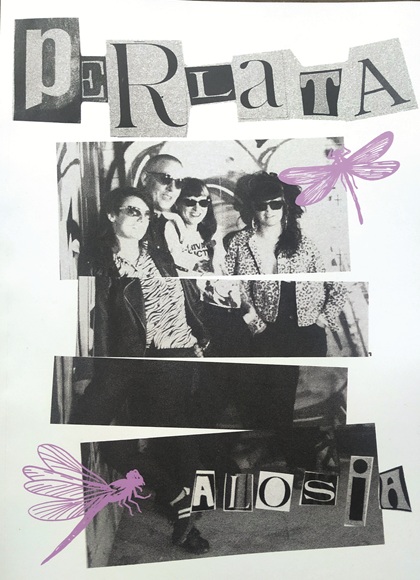"Culture is not as effective a tool as before to be a breaker"
- That in the txosnas and festivals the same music is always heard, that we are still drinking from the currents created in the 1980s, that more and more musicians are creating in English… They are increasingly common threads in the tertulia of bars (both physical and digital). Of these, Ion Andoni del Amo has been thrown out. First in the thesis, and then in the book Party & Borroka that he has published along with the Txalaparta.
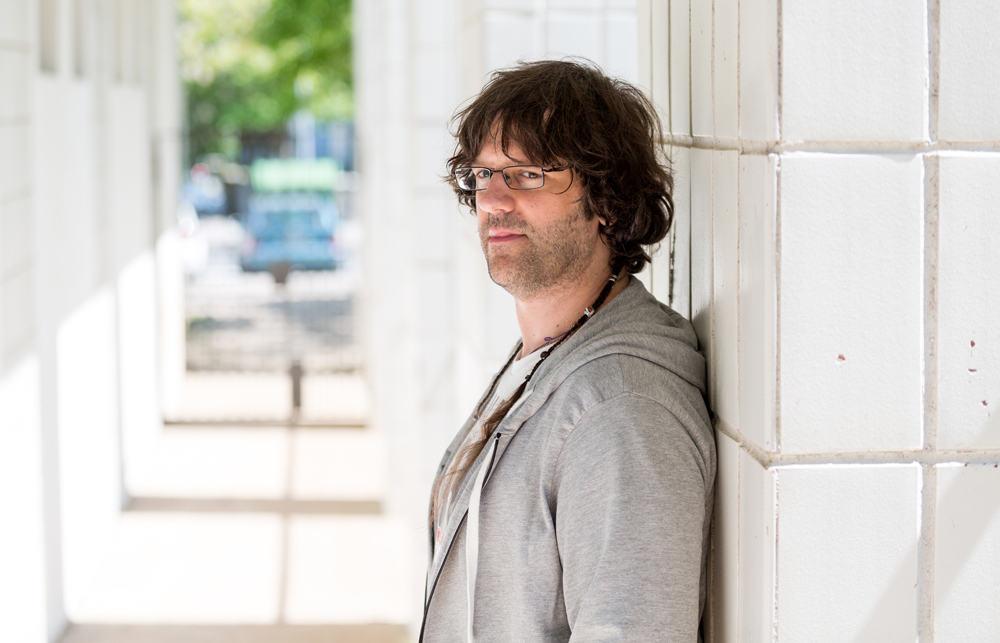
Before coming to the present day, you have analyzed the New Basque Song and the RRV of the 1960s. They have the same characteristics.
They're very different styles, but they have three common characteristics. The counter-cultural avant-garde of the moment, Bob Dylan, etc., and punk also brought here the vanguard of their time; the two counter-cultural movements; and the third element is the Basque or the cultural connection with Euskal Herria. In the case of punk, the connection of language is not so obvious, but there was a tendency to relate to the Basque. Over time, these alternative spaces and the connection with the Basque Country have made their way, but the least developed has been the connection with the avant-garde music.
What strikes you is this: Unlike other European countries, the same type of music has been heard for years in Euskal Herria.
Yes, I saw that for 25 years we've had the same kind of music in alternative spaces, and in addition, fewer and fewer people were coming. Seeing that this was not the case in other countries, I felt eager to analyze it and developed it as a master's degree thesis. Then, once I've started, I've developed more in the thesis, and then I've summarized it again to make the book. My opinion has changed in this way and also in reality. Over the past five years, there have been many changes, especially in the txosnas.
“A rocker canon has been built with two lines, a hard metal rock in the style of Berri txarrak, and an air instrument in the line of Betagari”
In the name of transgression, have some of the areas been culturally conservative?
Leire López expresses it very well. Saying the same things for 20 years at the same pace is not transgressive. These messages have lost their rupturing and political capacity at the time, to the point of being empty “chords”. It is curious that fixation has been given in alternative spaces and festivals, to belittle other styles and their transformative capacity.
On the other hand, it is true that the tendency to retromania, to ancient music, is today a universal phenomenon. But here's more, we've been installed in that retromania. An entire identity was built around the RRV and therefore it has remained strong. We have repeated the same schemes in the name of transgression, and when other elements of transgression have been created, we have developed behaviors contrary to them. We've kept a canon to be breaker: rocker, male... it's taken a long time to turn that around.
This is understood, among other things, by the difficult and late road that electronic music has taken in the Basque Country. From here he mentions the example of At in the book.
Hence the case of At is very significant. Other electronic groups are reminded that they are hedonists and they do not, that they have to do with drugs, that they do not claim... But Hemendik At was in Euskera, plagued by demands of an Abertzale line... And yet, that exclusion existed, coming from the aesthetic side. A rocker canon has been built, which has two lines: a hard metal rock, in the style of Berri Txarrak, and another of air instruments, in the style of Betagari. The one who was outside has not been accepted. The boycott has been made from many organizers and alternative circuits, but also from some sectors of the public. From here in At’s case, there were a lot of people who shouted “this is not our style.”
However, when the doors have been opened to the type of music that is heard in bars or txosnas, they have opened mostly to commercial music.
“There is no revolutionary musical or cultural aesthetic in itself. The way to organize is above all revolutionary”
That is what has happened, yes. When they realized that fewer and fewer people were moving, because it was late for cultural reflection, they bought a fashionable commercial product. Instead of throwing away the avant-garde, commercial logic has been used to attract people and save the countryside. Both in bars and in txosnas. At the same time, it is true that rap and electronic music are also beginning to have their place.
I guess that's what has caused those spaces that lost their counterculture character to melt even more.
Yes and no. It is true that the areas of a community were becoming, with a very definite cultural character, and that has been partly broken. But in this rupture two elements have been introduced: on the one hand, it has become more universal spaces, sacrificing a cultural character that is no longer transgressive. On the other hand, this has allowed more people to be involved in these alternative areas. It has also served as a bait.
Is it not worrying that the cultural avant-garde has no place in these spaces?
Not so much. When mass culture was homogeneous, making a revolution along the path of aesthetics and culture was very powerful and important. Punk did, the skin movement… Even by politicizing a crushed identity, there was a great shock. Today, however, the dominant cultural logic has changed: what drives plurality and plurality, so now these demands and attitudes do not have the same force as before. The system takes it as a way of life or consumption, as a taste. Culture and aesthetics as tools are not so revolutionary. It doesn't mean they're not important, but they've largely lost the ability to be breakers.
In this sense, the changes produced in these counter-cultural or alternative spaces should be de-dramatized. It's true that it's been an unconscious choice to accept commercial music to fill the box, but that doesn't mean it's been a wrong choice.

Is there not, then, currents that can be considered to be breaking?
No, there is no musical or cultural aesthetic that is revolutionary. The revolutionary is, above all, a way of doing and organizing. How and not how much. The question is not electronic music yes or no, assertive messages yes or no… The question should be how to organize, whether it is related to big labels or not, what attitude groups have with the organizers…
On the other hand, when the predominant cultural model favored uniformity, it broke up by creating different tribes. Today, on the other hand, it seeks diversity and fragmentation, both in culture and in other areas. If music now has a revolutionary sense, it's the ability to build and develop strong communities. That's why I say that the changes in the txosnas are not so dramatic.
“More and more groups are using English: in many sectors Euskera is taken for granted and not lived so urgently”
Feminism, at least in alternative spaces, has acquired a presence and a force that it did not have before. Is there any of that in music? Have you analyzed it?
In the 1980s, although punk is related to queer theory and provides resources to break with gender roles, this did not happen. Our punkis were very rebellious and heteronormative. Doctor Deseo may be an exception from the time. There were hardly any women, Las Vulpes, Belladona and much less. Since then, in the world of rock, the presence of women on the stage has been very scarce, and let us not say anything behind, as organizers and techniques. Electronic music and rap have forcefully kicked off some women, Las tea Party, La Basu… But in the alternative spaces for years a very masculine aesthetic has been imposed, and many times the girls who have entered have had to give continuity to that aesthetic. In recent years, he has begun to care for him when he is programmed. On the one hand, by programming groups of women, and on the other, by excluding the groups that perform these esthetics and “macho” performances.
Another thorny issue is that of language. In the 1980s there were also many groups in Spanish, but later trends towards English or Spanish have been punished (Lin Ton Taun…). Today, however, there are many local groups that are starting to use English, and the reception that this trend has also changed.
Yes, in the 1980s there were many groups dedicated to Spanish. At first they were not accepted as Basque groups, but appeared as modern ensembles in Egin, for example. But the movement was very powerful and from the “March and Struggle” the situation changed, and this recognition led to changes in the next generations. In the 1990s, however, the Basque language was the main language, and around it there was a militant commitment, also a pride. Consequently, the tendencies towards English or Spanish were poorly seen; that is where we have the boycott campaign suffered by the Lin Ton Taun group.
Today, it is true, more and more groups are using English. On the part of the public, the reception has also changed. Musicians speak a lot of style and ease to compose, as English is more monosyllabic. There are other issues behind it. On the one hand, a certain aesthetic break with rock in Euskera from the past decades. On the other hand, there is another general phenomenon related to institutionalization. In many sectors, the Basque people are guaranteed and do not live so urgently.
Opera 'Tristan und Isolde'
Bilbao Symphony Orchestra. Directed by: Assisted by Erik Nielsen.
The Bilbao Opera Choir. Directed by: Assisted by Boris Dujin.
The stage director: To the Allex Eagle.
The soloists: I'm talking about R. Assisted by Nicholls, G. By Hughes Jones, M. The... [+]
Party and recreation. Oral History of Rock Radical Vasco
Javier 'Jerry' Corral
Books, 2025
------------------------------------------------
Javier Corral ‘Jerry’ was a student of the first Journalism Promotion of the UPV, along with many other well-known names who have... [+]
All
WHEN: January 18th.
IN WHICH: Jimmy Jazz of Vitoria-Gasteiz.
----------------------------------------------
I have a question in my mind lately: how much do things change in 30 years? Yes, reader, you guessed it: I’ve just turned three decades old. It will be a... [+]
Itoiz, udako sesioak filma estreinatu dute zinema aretoetan. Juan Carlos Perez taldekidearen hitz eta doinuak biltzen ditu Larraitz Zuazo, Zuri Goikoetxea eta Ainhoa Andrakaren filmak. Haiekin mintzatu gara Metropoli Foralean.
Sawdust
Olaia Inziarte
Panda, 2024
-------------------------------------------
Fourteen songs written during the Depression. Olaia Inziarte presented it in the first late night in Basque that can’t be mentioned now. The bru-ta-la piece Sawdust opens the disc. A jazz... [+]
Since Benito Lertxundi, who told us that he will leave the scenes for ever, we have been there for several weeks, and since then many of us have felt orphans in one way or another, with a sense of loss or abandonment, sad. To Iruindarro, at least, we will remain forever honored... [+]
Nafarroa Arenan Mitoaroa ikusten izandako lagun batek “telurikotzat” jo zuen entzun-ikusi-sentitutakoa. Niri ere hala iruditu zitzaidan telebista medio etxetik hauteman nuena.
Pentsa daiteke Mitoaroak piztutako grinak eta atxikimenduak proiektuaren ikusgarritasuna... [+]
Basque Country Herriko Gazte Orkestra. Winter Meeting
Director: Iker Sánchez.
Narrator: Kepa Errasti.
Programme: Works by Britt and Beethoven.
Place: Victoria Eugenia Theatre, Donostia.
Day: 2 January.
-----------------------------------------------
After 27 years, we... [+]
Chulería, fuck!
WHEN: 5 January.
WHERE: At the Kafe Antzokia in Bilbao.
----------------------------------------------------
As I filled the room, looking down behind the railing above the theater, I've been playing to see if I find someone younger than me before the... [+]
The New Year’s Morning is the title of a roundness created by Joxe Ansorena, brother of our grandfather Isidro, for the Txistularis to hit the streets during the New Year’s Morning. In the air of that melody, we were picking up the wrecks of the night, like the garbage... [+]
Beyoncé at the break of an American football game in Houston, Texas. The American singer has come to the center of the stadium in a cowboy suit that she's had access to. The hat covers the nice, the legs the boots long to the knees. The scarce white suit shows her thighs and... [+]
Alosia
Perlata
Autoproduction, 2024
----------------------------------------------------
The Arrasate Perlata group has published a new work. He has several records behind him and his latest work is punk, Oi! And it was a documentary in tribute to the unrepeatable... [+]















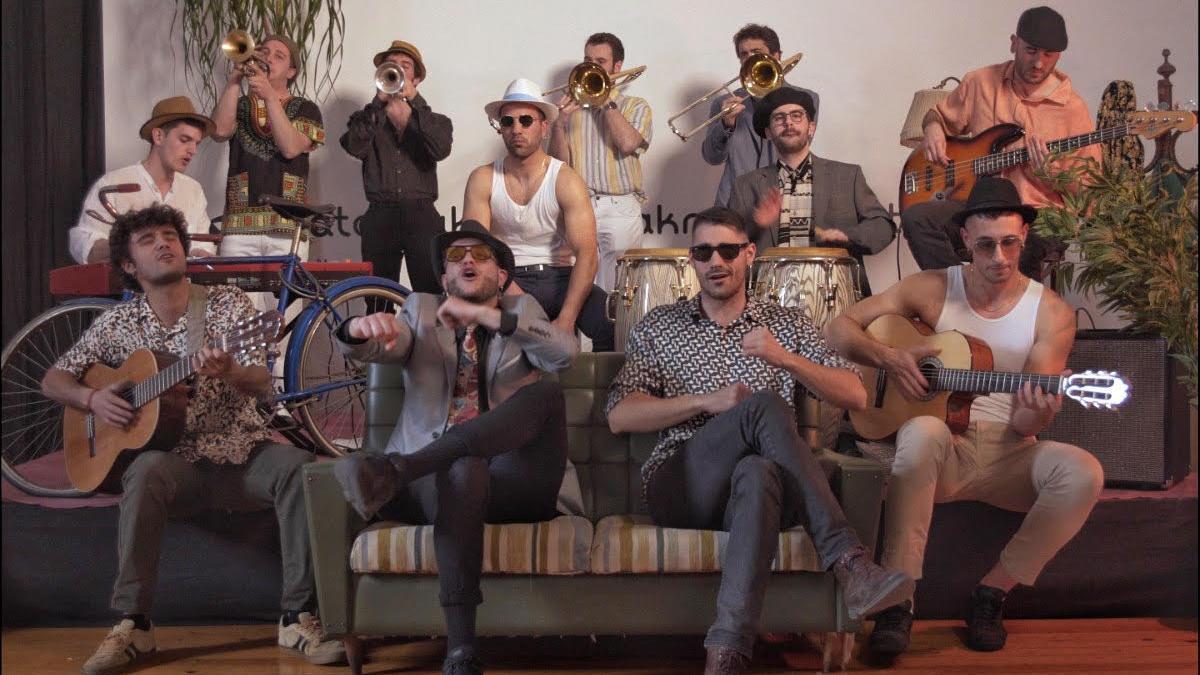
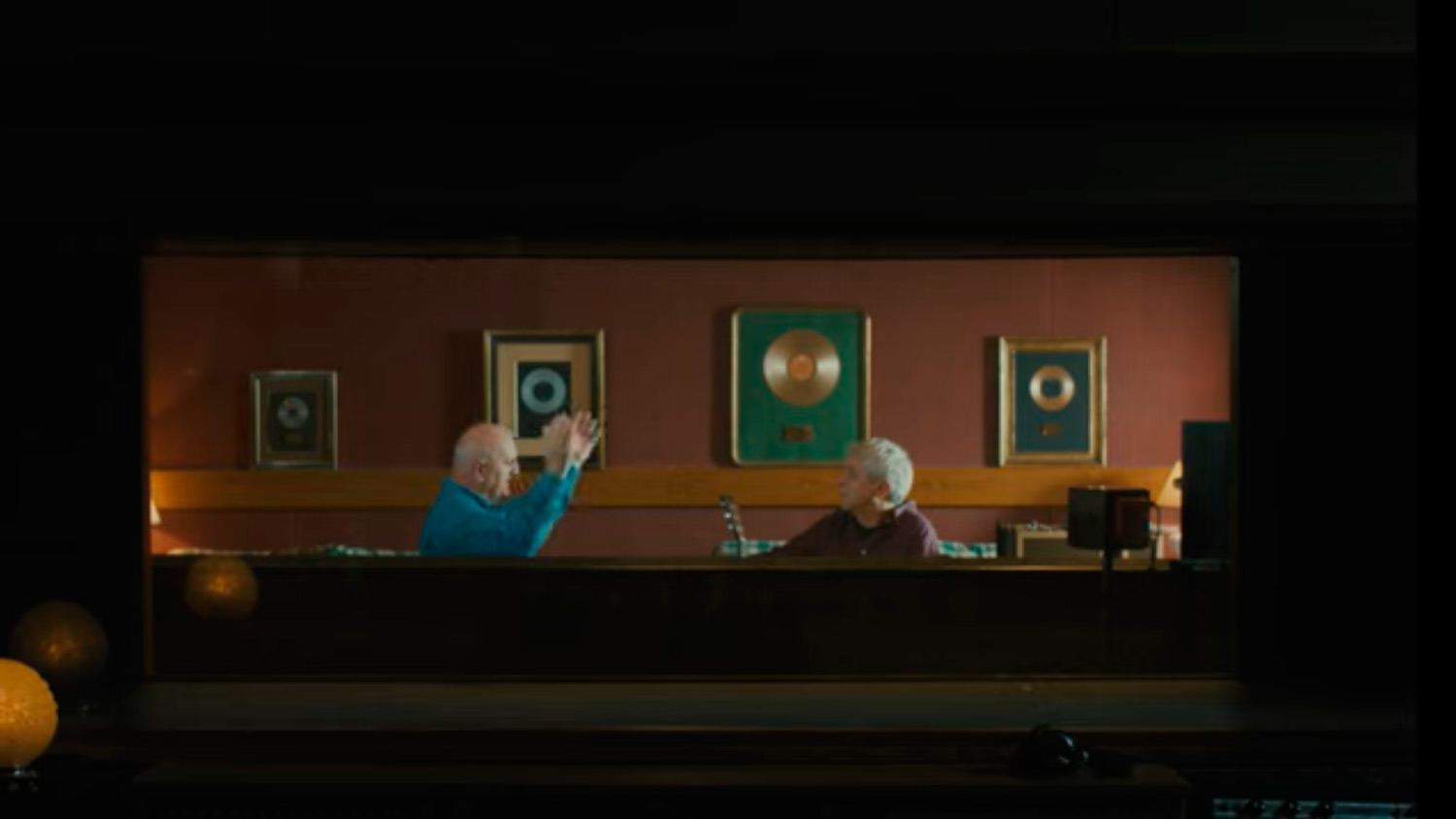



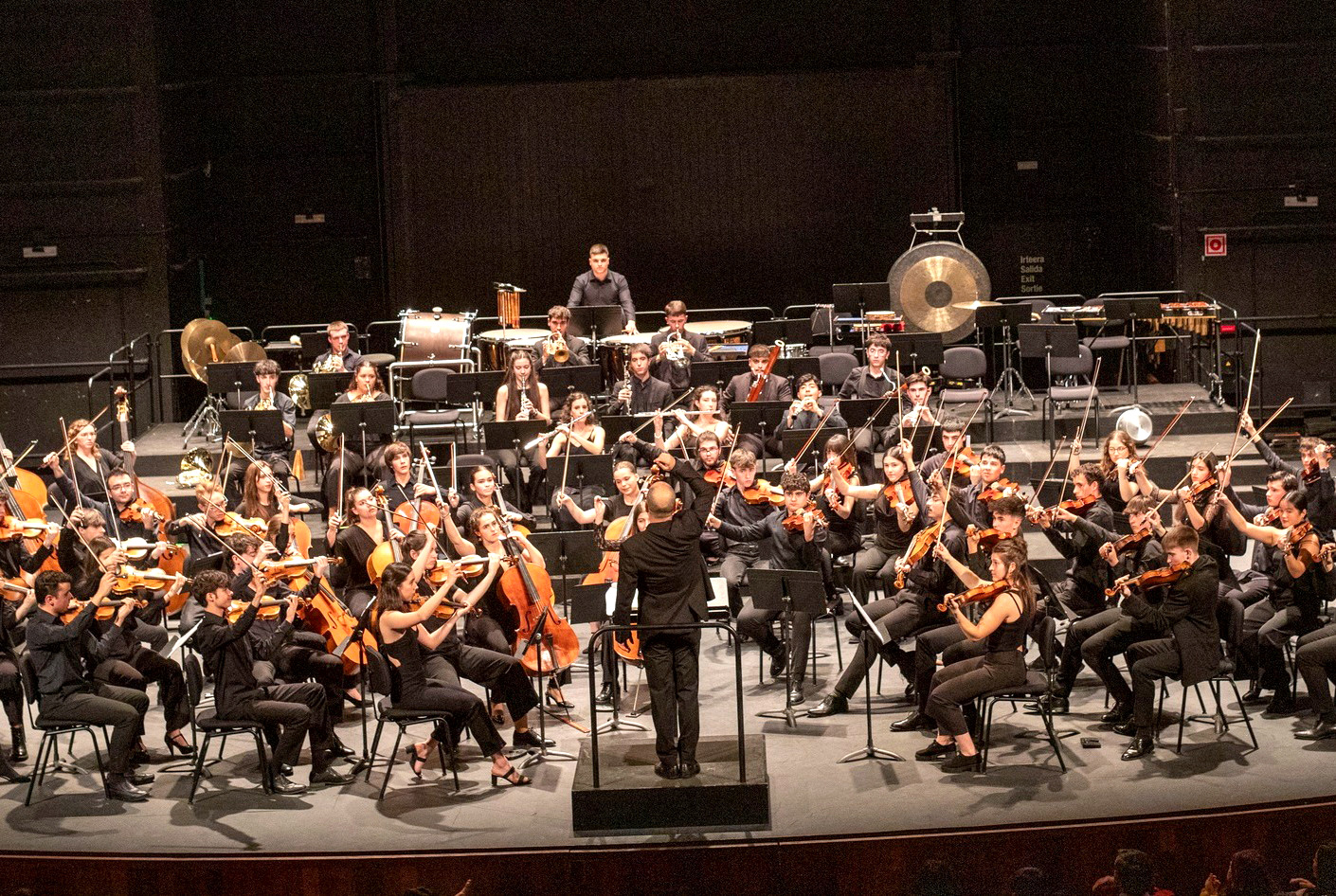
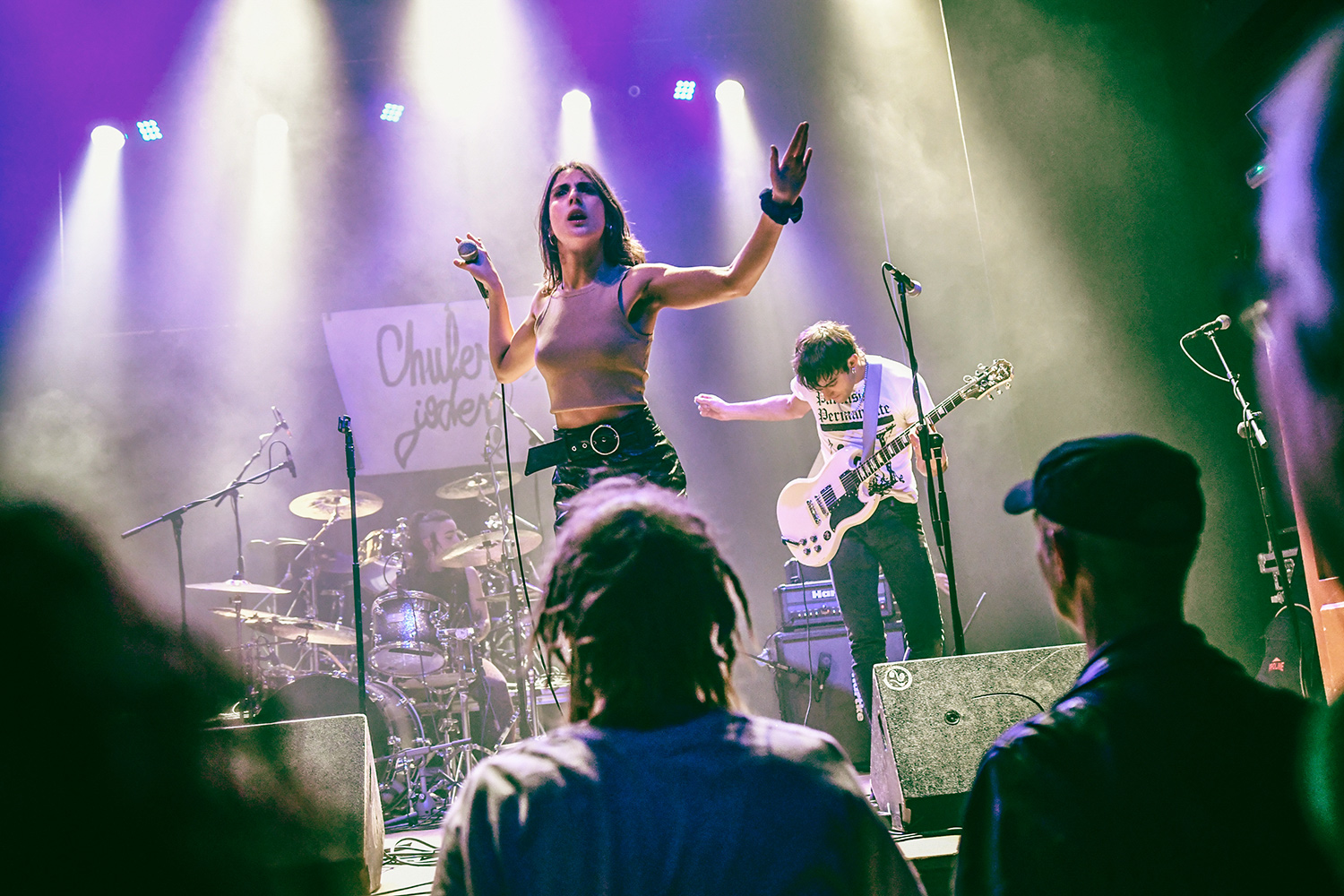


.jpg)
